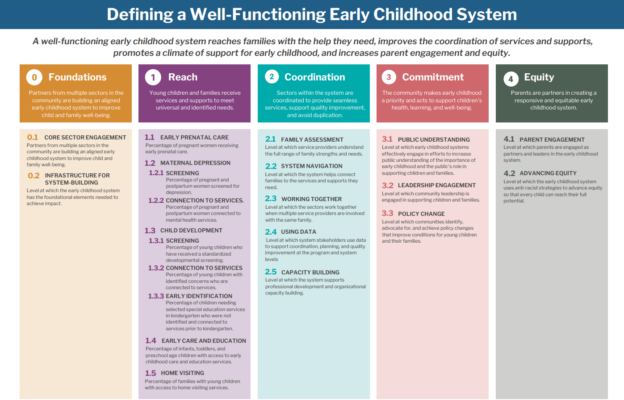Early Childhood Systems of Care: Lessons from the Field

This document illuminates the unique challenges inherent in developing early childhood systems of care and offers guidance on how to address issues based on lessons learned from the grantee community. The primary purpose of the document is to help states and communities anticipate and plan for typical hurdles, including assessing readiness for an early childhood systems of care grant, guiding a community assessment/mapping to evaluate issues and what work needs to be done, and identifying possible solutions to issues from other early childhood communities, among other activities. The document also offers brief synopses of major early childhood systems-building challenges, as well as keys strategies and/or resources.
There are core commonalities across all systems of care, regardless of age. All systems of care are rooted in the same core values, grapple with sustainability issues, rely on strong interagency collaboration, infuse a solid governance structure, promote services and supports that are individualized and provided in natural settings, and face challenges stemming from mental health stigma.
Systems of care for young children and their families are different than systems of care for older populations and, consequently, present unique challenges to grantees working to develop strong, sustainable early childhood systems of care.
What Makes Early Childhood Systems of Care Unique
- They are not MENTAL HEALTH systems of care.
- Partnerships look different.
- It is important to use a developmental perspective.
- Diagnostic issues are challenging.
- Engaging families of young children is particularly difficult.
- “Youth involvement” looks different for this population.
- Putting the necessary array of services and supports in place is challenging.
- Workforce issues are heightened in this population.
- Funding sources are different.
- Evaluation brings up more issues.






